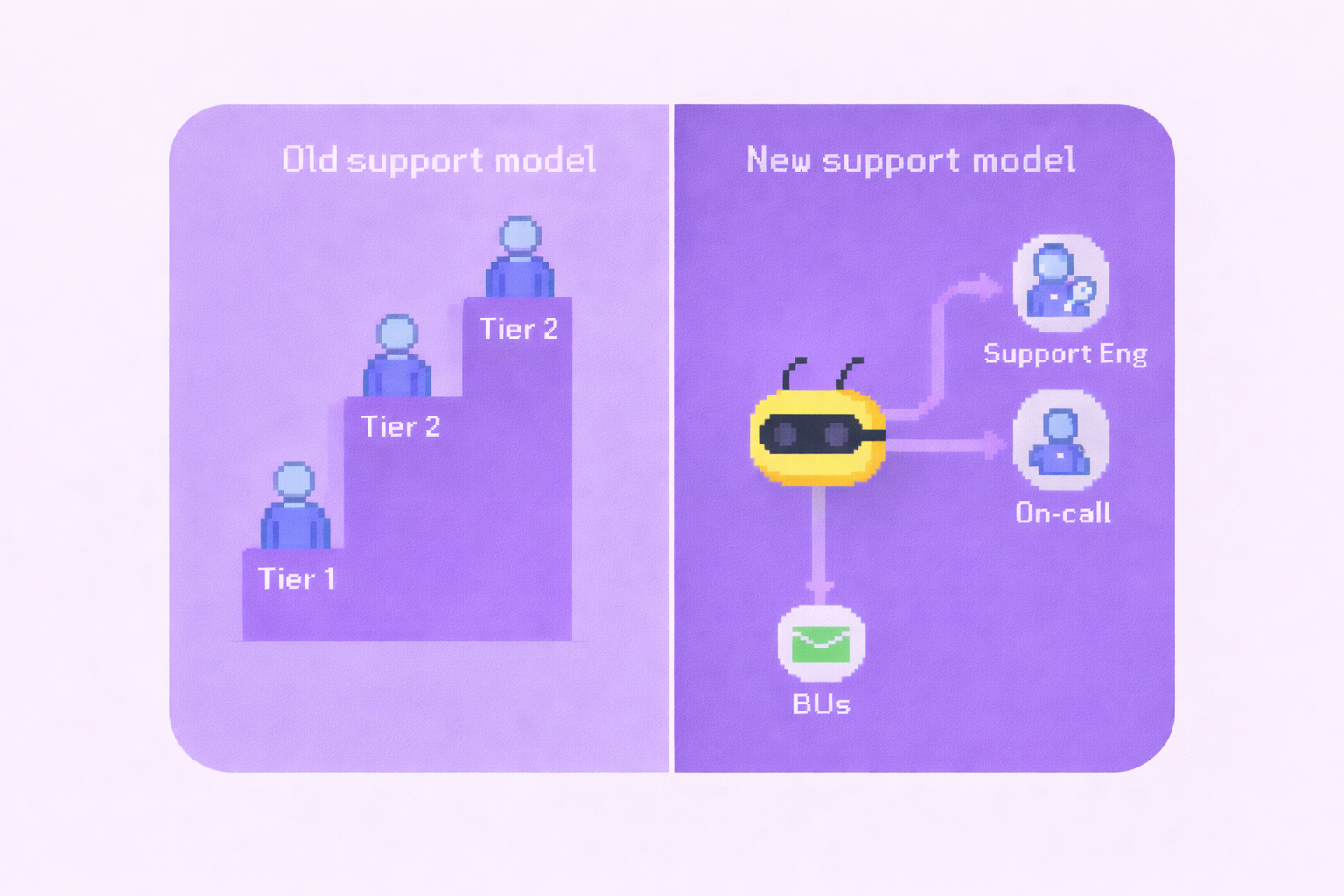6 Dos and Don’ts: Managing Employee Morale In a Recession

As far as the economy is concerned, we’re not exactly in the best of times. We’ve all seen the headlines: layoffs, budget cuts, and inflation are continuing to rise, and in many organizations, morale is falling in turn.
It doesn’t have to, however! In fact, in times like this, it’s more important than ever to focus on improving employee morale. Why? Morale and engagement are tightly linked, and when engagement dips, people tend to leave their jobs.
Gallup proved this in 2021 when they reported that teams with disengaged employees have turnover rates that are 18% to 43% higher than those with engaged employees.
Losing highly-skilled employees is costly in the best of times, and can be catastrophic when economic conditions are already less-than-ideal. Here at Bonusly, morale is something we’re pretty well-versed in. Let’s take a look at the dos and don’ts of managing morale during an economic downturn.
Also check out: 6 Effective Tips and Resources to Help HR Prepare for a Recession
6 Employee Morale Dos and Don'ts
1. Do focus on transparent communication
It may be tempting to try to shield employees from information about how the company is doing during times of economic downturn. And while that may have been a part of past company playbooks, we’re in an era of unparalleled transparency.
Business.com reported on the link between transparency and morale recently, citing that sharing more with employees leads to higher morale, increased retention, and a more favorable bottom line. The article also specifically mentions that financial transparency can help, rather than hinder, morale.
If you’re unsure how much you should share, think of it this way: no one wants to be blindsided by catastrophic news. If your financial reality as a company is changing, be frank but purposeful with what you share. Share information that impacts peoples’ work directly, and be sure to manage expectations by being direct. You may also want to hold regular Q&A sessions for employees to allow them to make their voices heard and have any fears quelled.
2. Don’t cut budgets so drastically that people can’t get their work done
Budget cuts are a regular—if unpleasant—by-product of financial dips. If you’ve been transparent about your company’s financial standing and the various ways it may impact peoples’ work and roles, announcing budget cuts should not come as a surprise to employees.
However, it’s hard to see the upside of budget cuts paired with significant impacts on an employee’s work day. As Forbes reported earlier this year, you should focus first and foremost on making cuts on processes that don’t add value. You may be surprised to find, for example, multiple unused software licenses or tools that are eating up costs.
If you do find yourself in the difficult position of cutting something that will significantly impact employees’ work experience, it’s important to be able to offer alternate solutions proactively. No one wants to be left in the dark without a backup plan.
If you're planning for a tighter budget and assessing your current tech stack or vendor partnerships, download our free HR Vendor Evaluation Scorecard!
3. Do keep the benefits and perks that matter most to employees
Morale greatly depends on whether employees feel valued by their employer. Cutting benefits and perks that are important to employees may send the message that the company’s financials are being prioritized over individuals’ well-being.
If you do have to cut any perks or benefits, try to start with any that are underutilized or not considered a pillar of your compensation package. Messaged correctly, most employees will understand if a perk they thought of as a “nice to have” gets paused for a year, but you’d be hard-pressed to find an employee at any company who would be okay with less vacation time or fewer crucial health benefits.
4. Do build a recognition program
Recognition plays a significant role in influencing morale and reducing turnover. In fact, nearly 50% of people who voluntarily leave their jobs cite a lack of recognition as their main reason for leaving.
Recognition needs to go further than an annual performance review. Frequent, specific, and timely feedback lets employees know they’re valued and that their work matters. Going one step further, implementing a recognition program will help automate and scale your recognition efforts, which is needed now more than ever. Employees are 56% less likely to search for a new job if they work for companies that prioritize effective employee recognition compared to those that don't.
Also, in times of economic tumult, many employees may be nervous about what they mean to the company. Does their work contribute to the company’s success in a meaningful way? Frequent recognition closes this gap and gives employees the peace of mind they need to exhale and focus on the task at hand.

5. Don’t micromanage
It may be tempting to tighten your grip on employees’ day-to-day task management in moments when you’re concerned about the company’s bottom line. Research shows that this is an impulse you’d be better off ignoring. As LinkedIn reported this year, micromanagement has almost universally deleterious effects: decreased productivity, increased turnover, and a loss of trust, to name a few.
If you’ve put in the work to find the right people for your organization, you need to trust them to do their jobs to the best of their abilities. In fact, going out of your way to let employees know you trust them to do what they do best is empowering. And if you’re giving regular feedback to employees, they already know what their strengths are and how they can use them to contribute meaningfully to the company’s success.
6. Do encourage the use of PTO during stressful times
Forbes recently asked whether employers would be justified in scaling back perks like extra time off as the economy worsens. In the article, the question received a range of answers, from the wishy-washy, “Take some PTO away but don’t mention that you’re taking it away,” to the more direct, “Of course not.”
It shouldn’t be a surprise to hear that we’re firmly in the “No” camp on this issue. In fact, we agree wholeheartedly with what Brian Kropp, VP of research for Gartner, said for the Forbes piece:
Part of the reason [employers] gave as to why they’re offering the benefit was to help deal with burnout, to help deal with stress, for mental health. If that’s the explanation you gave at the beginning, to now turn around and say we’re taking that away? It implies you no longer care about stress or mental health.
In short: if you increased PTO or offered more flexibility during the worst days of the pandemic, you can’t reverse those changes without expecting that morale will dip once again. Higher morale could do more to benefit your business than walking back perks like PTO that really matter to employees.
The bottom line: Don’t let morale take a backseat
There are many levers you can pull in an economic downturn to prioritize morale. Overall, your employees want to feel valued and secure. If you want to learn more about how you can ramp up recognition and rewards to make sure engagement and morale remain high, check out Bonusly.
Are you feeling the pressure of supply chain shortages, inflated costs, and tough competition for talent at your organization? 🙋
If you're planning for a tighter budget and evaluating your current tech stack or vendor partnerships, we've got just the resource to help. With our free HR Vendor Evaluation Scorecard you can easily:
📝 Track general notes from each vendor call
📩 Collect follow-up materials and contact information
🤑 Notate price per seat and annual costs
💯 Rate vendors based on your company's priorities and budget







